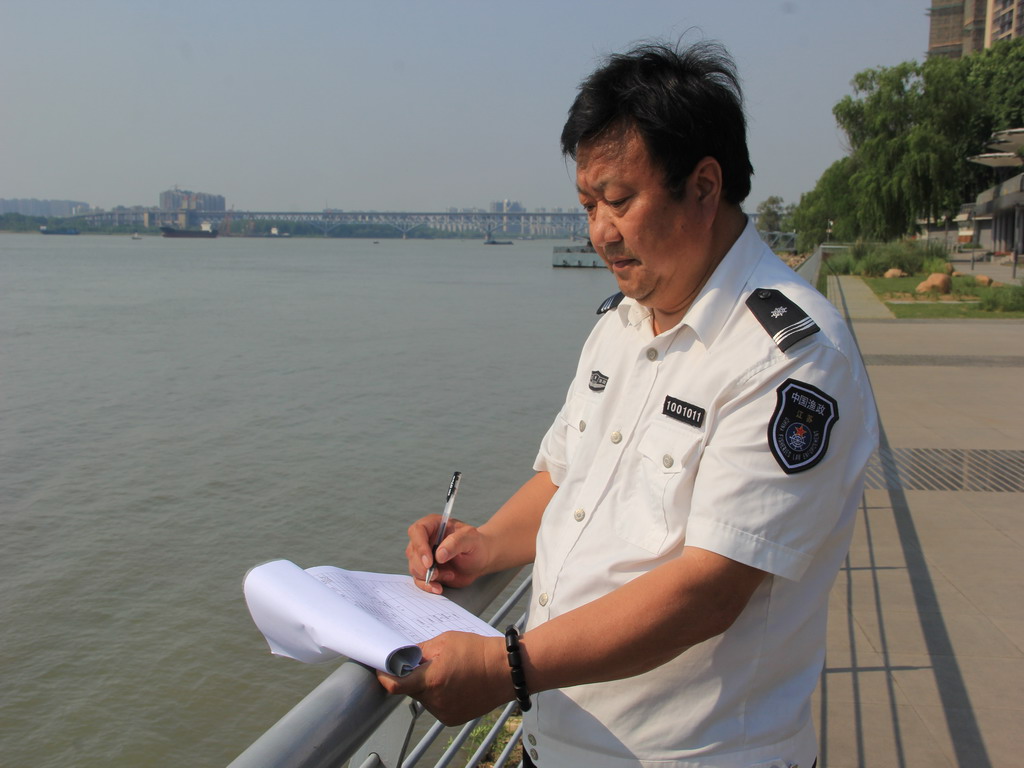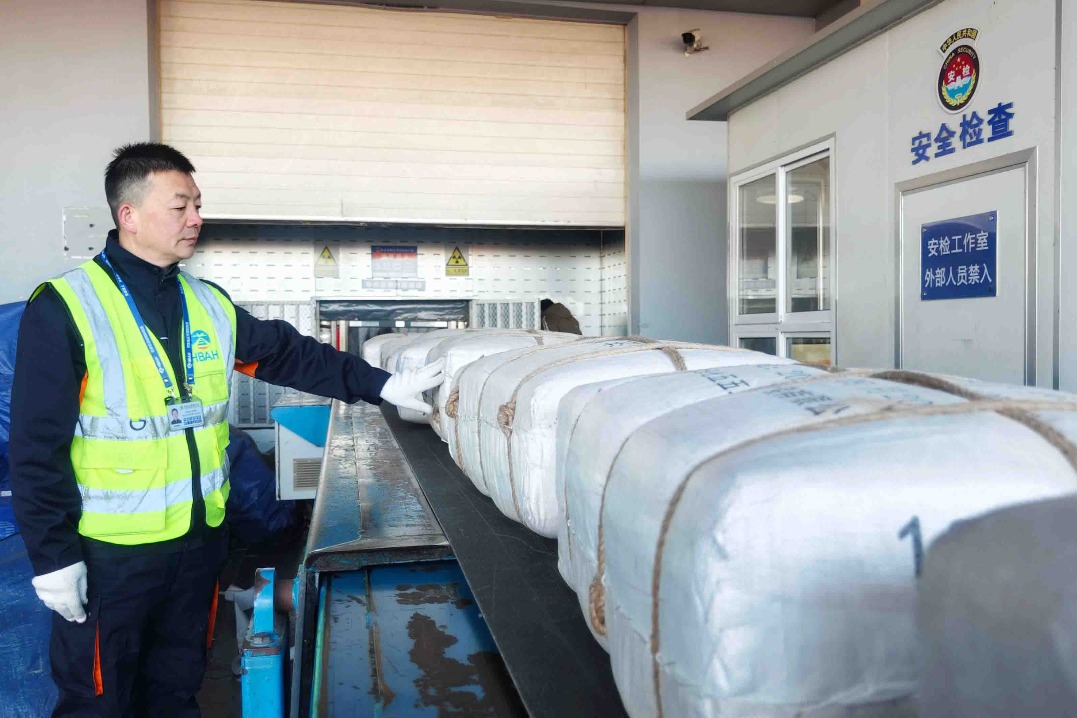Patrolman tells of his rewarding encounters with the 'smiling angel'


For more than four years, Zhu Guoqiang has patrolled the Yangtze River to monitor critically endangered finless porpoises, no matter how hard it rains or how strong the wind blows.
The 60-year-old, who has worked at the Nanjing Finless Porpoise Reserve in Jiangsu province since it was established in September 2014, walks or rides an electric bike for at least 32 kilometers on muddy roads alongside the river every day.
"The porpoises appear most frequently in the area that I patrol," Zhu said. "I record, for professional researchers, the places, numbers and times they show up."
As a civil servant, Zhu said he never thought he would become a full-time porpoise observer.
"I happily accepted the offer when my boss told me that the newly founded reserve needed someone to watch the porpoises," he said. "I want to contribute to the protection of the marine animals, including this 'smiling angel' in the Yangtze River."
The finless porpoise is known as the "smiling angel" of the Yangtze due to its slightly curved mouth, which gives the impression that it is smiling.
At first, Zhu could not find the porpoises even when he stood still on the riverbank. He gradually learned when and where to find them and was then able to observe them repeatedly.
"There is a greater chance of seeing the porpoises when it's cloudy and windy," Zhu said. "But the wind cannot be too strong. They may also show up when the tide rises in summer, when small fish emerge in the river or black-eared kites fly overhead."
Zhu said he is happy that the number of porpoises has continued to rise in recent years due to their improved living environment.
"Things have changed in these four years in Nanjing," he said. "The Qinhuai and Jinchuan rivers, which flow into the Yangtze, used to smell terribly and have strange-colored water. Sometimes they even had foam floating on the surface.
"But now the water quality in both rivers has changed. Construction is no longer taking place on riverside marshlands, which have been set aside for the porpoises."
Zhu previously argued with people who introduced species into the Yangtze River or polluted the water by fishing with chicken or duck intestines.
He said his work has become easier, especially when he stops anglers fishing illegally at the reserve, with more people now caring about the mammals.
"Most of the people stopped fishing immediately after I explained to them that the fish in the reserve were for the porpoises. They told me they didn't know fishing was forbidden at the reserve, and that they didn't intend to hurt the creatures."
Zhu said he has noticed that the number of fishermen has continued to fall near the reserve, because the local government encourages them to have other hobbies and compensates them for their unused fishing equipment.
He said many volunteers have joined his patrols and are searching for the porpoises along the Yangtze.
In November, Zhu will retire and have more time to spend with his family. But he said he is willing to continue watching the porpoises if asked to do so by the reserve.
"The porpoises give birth to calves in the spring and summer. The newborns sometimes lie on their mothers' backs and sometimes swim up and down the river. Those moments make my efforts count and my life meaningful," he said.
- Hebei sends winter supplies to earthquake-hit Xizang
- Shanghai Disney Resort ushers in the Year of the Snake with festive celebrations
- Chinese researchers develop green, effective pesticide formulation
- 1,211 aftershocks detected after Xizang 6.8-magnitude quake
- Great Wall's most dangerous section to launch 1st tourist route
- Xi's special envoy to attend inauguration of Venezuela's president





































